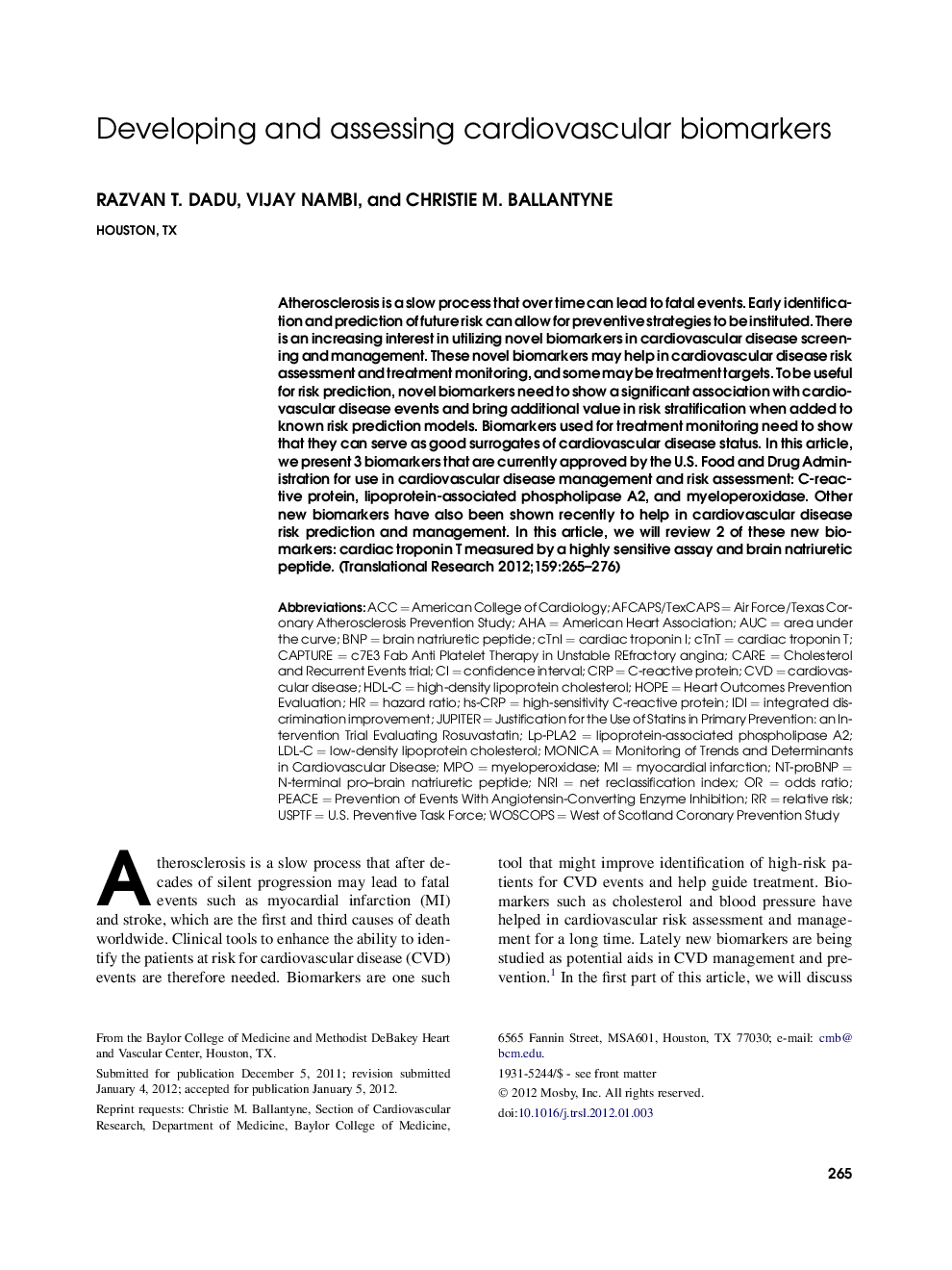| Article ID | Journal | Published Year | Pages | File Type |
|---|---|---|---|---|
| 3841033 | Translational Research | 2012 | 12 Pages |
Atherosclerosis is a slow process that over time can lead to fatal events. Early identification and prediction of future risk can allow for preventive strategies to be instituted. There is an increasing interest in utilizing novel biomarkers in cardiovascular disease screening and management. These novel biomarkers may help in cardiovascular disease risk assessment and treatment monitoring, and some may be treatment targets. To be useful for risk prediction, novel biomarkers need to show a significant association with cardiovascular disease events and bring additional value in risk stratification when added to known risk prediction models. Biomarkers used for treatment monitoring need to show that they can serve as good surrogates of cardiovascular disease status. In this article, we present 3 biomarkers that are currently approved by the U.S. Food and Drug Administration for use in cardiovascular disease management and risk assessment: C-reactive protein, lipoprotein-associated phospholipase A2, and myeloperoxidase. Other new biomarkers have also been shown recently to help in cardiovascular disease risk prediction and management. In this article, we will review 2 of these new biomarkers: cardiac troponin T measured by a highly sensitive assay and brain natriuretic peptide.
